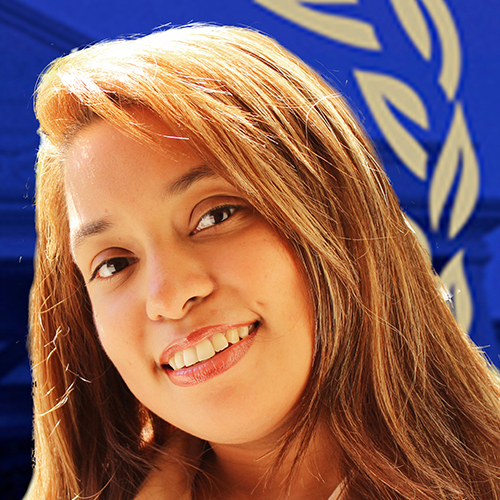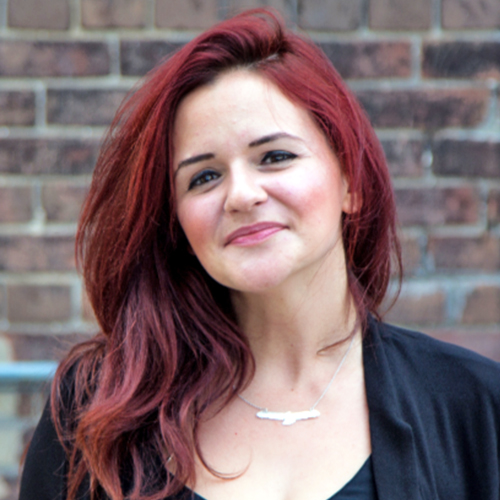 IBCLC Detailed Content Outline: Psychology, Sociology, and Anthropology Focused CERPs - Section V
IBCLC Detailed Content Outline: Psychology, Sociology, and Anthropology Focused CERPs - Section V
Access CERPs on Psychology, Sociology, and Anthropology for the IBCLC Detailed Content Outline recertification requirements. Enjoy convenient on-demand viewing of the latest Psychology, Sociology, and Anthropology focused IBCLC CERPs at your own pace.

Peer Counselors In The Hospital; Taking Your Peer Counselor Program To The Next Level

Lisa Huffstetler is the mother of six children with years of personal breastfeeding experience. She has been an International Board Certified Lactation Consultant since 2011. Lisa began working with breastfeeding families as a Peer Counselor in 2008 as part of the Gaston County, North Carolina WIC's implementation of their Peer Counselor Program. She is passionate about helping new moms become successful in reaching their breastfeeding goals. Lisa is currently working as the Gaston County WIC agency's Lactation Consultant. She enjoys teaching breastfeeding classes, conducting staff trainings and working to keep staff updated on breastfeeding policy.
As a new grandmother, one of her new found interests is helping grandparents support their children appropriately in their new role as parents, especially in effective support of breastfeeding.
Hospital visits from a Peer Counselor just after delivery can have a tremendous impact on breastfeeding for mom and baby. Evidence-based research shows that Peer Counselors can share an important role in the success of breastfeeding for families. Peer Counselors making an early connection and reminding families that there is someone here to help them with their breastfeeding journey, now and after mom and baby discharge from the hospital, can be very comforting for those nervous new parents. Often, a short visit from a Peer Counselor to reassure a new mother that she is right on track with breastfeeding is just what mom needs to encourage her for the learning period she is going through. Learn about the success stories of a Peer Counselor Program from the implementation of hospital visitation through years of success in hospital visits and the difference it has made in their Peer Counselor Program participation and breastfeeding numbers.
There are challenges to getting Peer Counselor hospital visits started. It may not be as easy to get your foot in the door as you would think. We will discuss some of the red tape situations you may encounter as you start trying to set up hospital visits. Adding hospital visits to your Peer Counselor activities can have a positive impact on your Peer Counselor Program and increase breastfeeding rates for your area.

View Details / Enroll

View Details / Enroll


Angel Montfort, Psy.D., PMH-C is a licensed clinical psychologist, mother of four, and the founder of the Center for Maternal Mental Health, a therapy practice dedicated to serving women throughout all stages of motherhood. She has always gravitated toward treating women and became passionate about perinatal mental health while working in a Women's Clinic within a hospital setting. At first it was a way to meet the needs of her patients and it quickly led to an understanding of her own postpartum experiences, which deepened her connection to this work.
In her practice, Dr. Montfort addresses concerns such as postpartum depression, postpartum anxiety, birth trauma, perinatal loss, infertility, and adjustment to motherhood.
Dr. Montfort shares educational information on her Instagram account (@drangelmontfort) and her website (www.cfmmh.com) in an effort to validate and uplift moms who are struggling through a time that is expected to be the most joyous. Her expertise in perinatal mental health has been featured in a number of media outlets including Forbes, Healthline, and ScaryMommy. She believes that if we make space for both the highs and lows of motherhood, we set new moms up for a more balanced experience.
Perinatal Anxiety is included under the umbrella of Perinatal Mood & Anxiety Disorders which are experienced by approximately 1 in 5 mothers. This particular type of anxiety is characterized by intense uncontrollable worry, panic attacks, insomnia, racing thoughts and a general fear that something bad will happen (typically to one’s infant). Although worrying about one’s pregnancy, delivery, and baby is very common; these worries become concerning when they are all-consuming and start to interfere with one’s ability to function. This presentation will focus on ways to identify perinatal anxiety in your patients, the importance of screening throughout pregnancy and postpartum, strategies to share with your patients for managing their anxiety such as relaxation exercises, support groups, education, physical movement, mindfulness, etc., and resources to provide to patients in need of mental health treatment.

View Details / Enroll
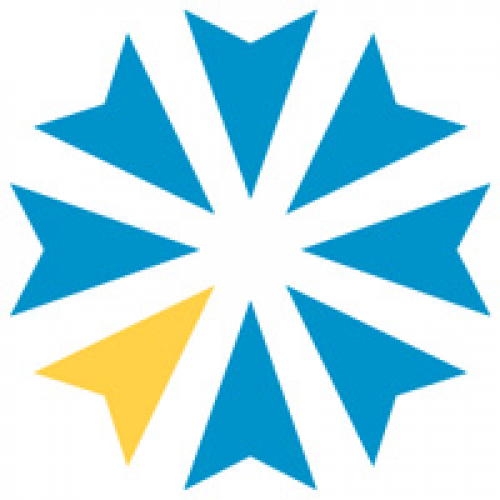

Haaritha Boltman-Binkowski completed her B. Cur (Cum Laude) at the University of the Western Cape in 2003. She then gained clinical experience in both private and government institutions in the labour ward. She completed her Masters degree in Advanced Midwifery in 2005. In 2007 she started working as a lecturer at the University of the Western Cape. During the 13 years of lecturing, she has lectured various disciplines, including General Nursing, Midwifery, Advanced Midwifery, Neonatal Nursing, Research Methods, and Gender Based Violence as a Public Health Issue. She has co-ordinated both theory and clinical for many of the modules and year levels taught. Since 2015, Haaritha has been co-ordinating and teaching the Masters in Nursing: Advanced Midwifery and Neonatal Nursing. Haaritha is passionate about collaboration and has organised two international collaborative visits in 2019 from different institutions in Belgium (UC Leuven and VIVES), and has been involved with NEPAD efforts since 2012. In 2019 she graduated with another Masters degree in Nursing Education (Cum Laude). Her curriculum development experience covers micro aspects as well as developing the new graduate programme in Midwifery. Her clinical and teaching experience is as varied as her research interests but her focus areas are: maternal and child health, evidence-based practice, postpartum haemorrhage, teaching and learning and decolonisation.
Dr. Ruth Oshikanlu MBE is a multi-award winning nurse, midwife and health visitor. A nurse entrepreneur, consultant, leader and parenting expert, she is passionate about supporting vulnerable children and their families to reduce health inequalities and improve their life outcomes. Her previous roles include: HIV specialist midwife, Family Nurse at one of the first pilot sites of The Family Nurse Partnership intensive home visiting parenting programme for vulnerable families, and Nurse Leader of The Lewisham Young People’s Health and Wellbeing Service.
Ruth is a Pregnancy Mindset Expert and supports pregnant women who have had assisted conception or previous pregnancy loss. She is the author of Tune In To Your Baby: Because Babies Don’t Come with An Instruction Manual.
Ruth is a Queen’s Nurse, Fellow of The Institute of Health Visiting, Royal College of Nursing and The Royal Society of Arts. She is the recipient of several national healthcare and business awards; a regular columnist and has published several feature articles in numerous national nursing and healthcare journals.
Ruth was appointed a Member of the Order of the British Empire (MBE) in the New Year 2019 Honours List for being an Ambassador for the Health Visiting Profession and for services to Community Nursing, Children and Families. She is a Churchill Fellow and was awarded an honorary doctorate degree from London South Bank University in November 2019.
Stephanie Tillman (she/her) is a midwife at the University of Illinois at Chicago. She completed her undergraduate degree in Global Health and Medical Anthropology at the University of Michigan, and her graduate degree in Midwifery at Yale University. She is on the Boards of Directors of Nurses for Sexual and Reproductive Health (NSRH) and the Midwest Access Project (MAP), is an Advisory Committee Member of the Queer and Transgender Midwives Association (QTMA), and is a member of the ACNM Ethics Committee. She is currently a Clinical Medical Ethics Fellow at the University of Chicago's MacLean Center, where she is focusing on consent in intimate exams. Stephanie blogs under the name Feminist Midwife, and through that online platform, academic and public writing, and professional speaking engagements, seeks to interact with providers and consumers in conversations about consent in health provision, queer care, sex positivity, nurses and advanced practice clinicians in abortion care, and trauma-informed frameworks. Find her on social media @FeministMidwife.
The emergence of the global COVID-19 pandemic brought with it an unprecedented impact on birthing families and their care providers. The upheaval and uncertainties associated with changing policies and procedures, the challenges of shifting certain aspect of care to the virtual world, and the trauma experienced by birthing parents, babies and care providers alike, will have long lasting effects. This panel brings together midwives from different areas of the world to discuss the impact of COVID-19 on parents, babies, and care providers and the implications for the profession moving forward.

View Details / Enroll
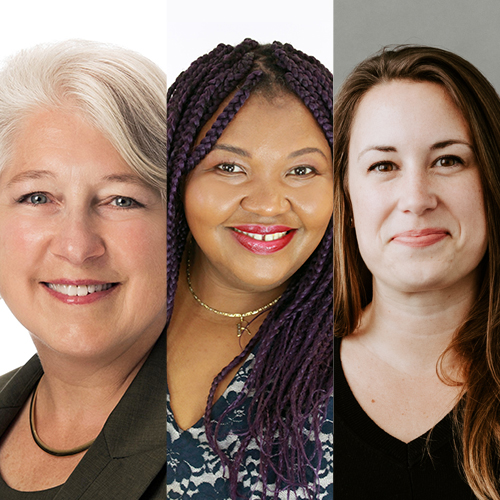
View Details / Enroll
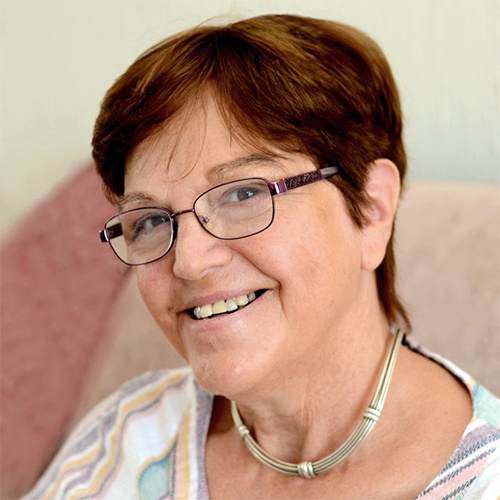
Pharmacokinetics and Clinical Implications of Drugs in Human Milk: The Substance-Exposed Infant

In her employed life Wendy was a community pharmacist and also worked in doctor surgeries supporting cost effective, evidence-based prescribing.
Wendy left paid work to concentrate on writing Breastfeeding and Medication (Routledge 2nd edition 2018), developing information and training material on drugs in breastmilk as well as setting up her own website www.breastfeeding-and-medication. She has also published Breastfeeding for Dads and Grandmas (Praeclarus Press) and Why Mothers Medication Matters (Pinter and Martin). She is also co editor of a book to be published January 2020 called A guide to breastfeeding for medical professionals (Routledge).
Wendy is known for her work on providing a service on the compatibility of drugs in breastmilk and has been a breastfeeding peer supporter for 30 years. She is passionate that breastfeeding should be valued by all and that medication should not be a barrier. She has 3 daughters and 5 grandchildren. All her family seem as passionate about breastfeeding as she is and currently all 3 of her daughters are breastfeeding.
She was awarded a Points of Light award by the Prime Minister in 2018 and nominated for an MBE in the New Year's Honours List 2018 for services to mothers and babies. She received her award at Windsor Castle in May 2019 from Her Majesty the Queen.
Topic: Medication and Breastmilk in the NICU - [View Abstract]
Topic: Pharmacokinetics and Clinical Implications of Drugs in Human Milk: The Substance-Exposed Infant - [View Abstract]
We are aware that an increasing number of babies are exposed to opiates, to methadone, to cannabis and cocaine through maternal breastmilk. In this presentation, I will discuss the pharmacokinetics of the medications and how this impacts the clinical care of the babies both immediately after delivery and later on. We need mothers to be open and honest about any drugs which they have taken in order that we may care for the baby appropriately if it is exhibiting clinical symptoms. This impacts on safeguarding issues but our aim should be to help the mother consider the impact on her baby using evidence-based information and to maintain breastfeeding appropriately. What are the long- and short-term implications of exposure for mother and baby? Is there sufficient research? As always, more questions than answers.
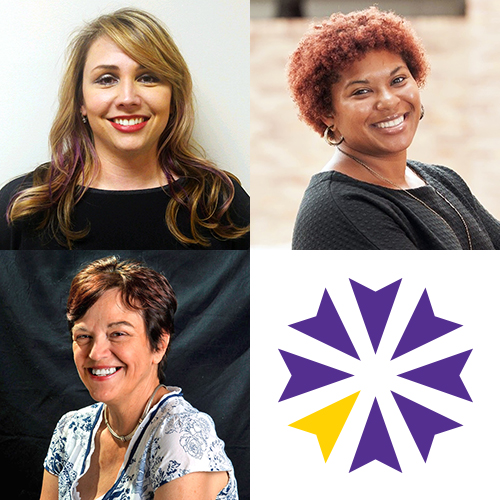
View Details / Enroll
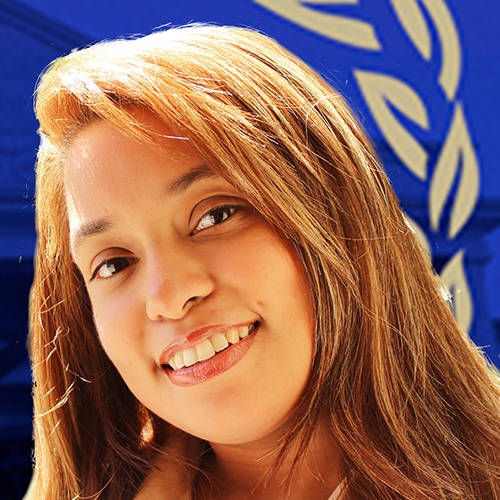
Postpartum Haemorrhage: Non-pharmacological Treatment for Primary Care Midwives

Haaritha Boltman-Binkowski completed her B. Cur (Cum Laude) at the University of the Western Cape in 2003. She then gained clinical experience in both private and government institutions in the labour ward. She completed her Masters degree in Advanced Midwifery in 2005. In 2007 she started working as a lecturer at the University of the Western Cape. During the 13 years of lecturing, she has lectured various disciplines, including General Nursing, Midwifery, Advanced Midwifery, Neonatal Nursing, Research Methods, and Gender Based Violence as a Public Health Issue. She has co-ordinated both theory and clinical for many of the modules and year levels taught. Since 2015, Haaritha has been co-ordinating and teaching the Masters in Nursing: Advanced Midwifery and Neonatal Nursing. Haaritha is passionate about collaboration and has organised two international collaborative visits in 2019 from different institutions in Belgium (UC Leuven and VIVES), and has been involved with NEPAD efforts since 2012. In 2019 she graduated with another Masters degree in Nursing Education (Cum Laude). Her curriculum development experience covers micro aspects as well as developing the new graduate programme in Midwifery. Her clinical and teaching experience is as varied as her research interests but her focus areas are: maternal and child health, evidence-based practice, postpartum haemorrhage, teaching and learning and decolonisation.
Postpartum haemorrhage (PPH) is one of the most preventable causes of maternal death, yet it still ranks as one of the main conditions responsible for maternal mortality. PPH has serious adverse effects on maternal health including death, adult respiratory distress syndrome, coagulation disorders, shock, hysterectomy and loss of fertility. As bleeding after delivery is expected, women often do not realize the seriousness of their condition until it is too late and often do not survive to be referred to a more specialized level of care.
The diagnosis and management of PPH is complex, with the main challenge being the visual assessment of blood loss. As women are not able to warn healthcare providers timeously about their condition, the situation is compounded by poor clinical assessments, a lack of accuracy in diagnosis, lack of resources, and differing methods of treatment . Most of the primary maternity care in South Africa is provided by midwives, and the overall quality of care during the management of PPH is poor. In addition, the scope of practice of midwives is limited. Unless a registered midwife has a prescribing license, they may not administer any medications, with the exception of oxytocin. Midwives may also not perform any surgical interventions.
The purpose of this presentation will be to present evidence-based, effective, non-pharmacological methods of treating postpartum haemorrhage, which primary care midwives may find valuable in their practice.

View Details / Enroll
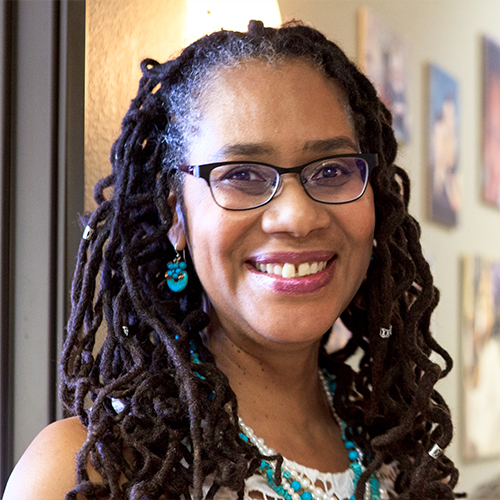

Dr. Tanya Khemet Taiwo is an assistant professor in the Department of Midwifery at Bastyr University. She also provides midwifery care on a part-time basis at CommuniCare Health Centers, a Federally Qualified Health Center with clinics in urban and rural communities around the Sacramento area. Dr. Taiwo is an epidemiologist whose research examines the role of maternal prenatal stress on child neurodevelopment, and how these stressors interact with environmental exposures. She serves as co-director of the Community Engagement Core at the UC Davis Environmental Health Sciences Center. She is also a research fellow at The Birth Place Lab at the University of British Columbia. At the Birth Place Lab she’s collaborating on the Giving Voice to Mothers Study, a community based participatory research project that examines how race, ethnicity and birthplace affect maternity care in the United States. Tanya comes from a family tradition of midwives, stretching back at least three generations, she received her midwifery training at Seattle Midwifery School, and apprenticed with midwives in Seattle, Senegal and Jamaica. She is committed to the revitalization of the tradition of midwifery within the African American community, and the eradication of the ethnic disparities in perinatal health outcomes.
This presentation will cover the role of environmental exposures and pregnancy outcomes with a focus on the vulnerabilities of the fetal brain. The historical foundations of environmental disparities will be examined as well the how other sociodemographic factors amplify their effects. Participants will also learn how they can provide effective health education for prevention and ways to advocate for policies to reduce exposures for pregnant people, and the most impacted communities.
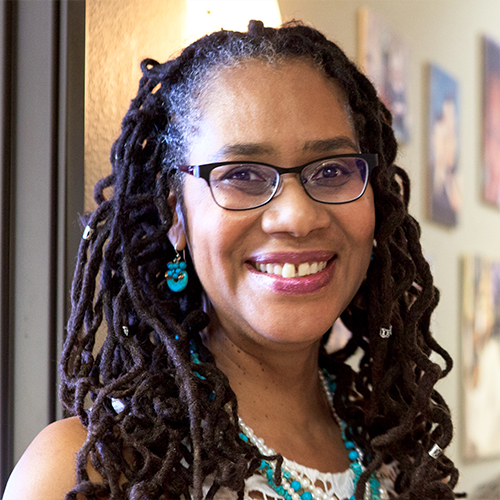
View Details / Enroll
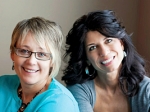
Preventing the Plunge: Why the First 2 Weeks are Crucial for Breastfeeding Duration.

Cindy Leclerc and Jana Stockham are Registered Nurses and IBCLCs with over 20 years experience helping families get started with breastfeeding. In addition to hands on care, Cindy and Jana use technology to support families through their website (cindyandjana.com), online prenatal breastfeeding classes (simplybreastfeeding.ca) and iPhone app, NuuNest. Cindy is a strong believer in mother-to-mother support, helping to facilitate breastfeeding and postpartum depression support groups. She is intrigued by all things online and actively uses social media to promote breastfeeding. Jana has been trained as a Baby Friendly assessor and helped to coordinate the first Baby Friendly designation in Saskatchewan. She has a passion to help families with new babies and facilitates a group for breastfeeding moms.
Topic: Meeting your breastfeeding goals - [View Abstract]
Topic: Preventing the Plunge: Why the First 2 Weeks are Crucial for Breastfeeding Duration. - [View Abstract]
The majority of women begin breastfeeding at birth. Within the first 6 weeks, however, breastfeeding rates fall dramatically. To help women hang in with breastfeeding beyond the first weeks, we must first understand why they struggle. Learn what the research is saying and what you can do in your practice to help women meet their breastfeeding goals. IBCLC’s who specialize in the early weeks of breastfeeding will share case examples based on over 20 years of working with breastfeeding families.

View Details / Enroll
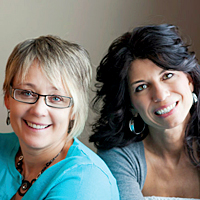
View Details / Enroll
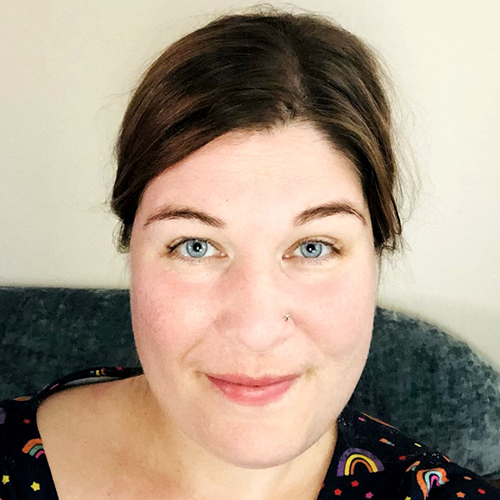
Protecting Breastfeeding by Facilitating Safe, Early Discharge from NICU with Home Nasogastric Tube Feeding

Amanda is a children's nurse, having worked on pediatric wards and in the community supporting children with complex health needs, although over ten years of her nursing career have been in neonatal care, where she is further qualified in specialty (QiS). She trained and volunteered in breastfeeding peer support two years into her nursing career, ultimately sitting the exam to become an IBCLC to ensure that the families within neonatal care had access to an infant feeding specialist familiar with their journey. Amanda has since further specialized in Neonatal Homecare, is a Nurse Practitioner in restrictive lingual frenulum, and has worked as an Infant Feeding Lead for a regional surgical NICU and SCBU, as well as a regional Infant Feeding Advisor to ten neonatal units across a regional network. She has recently been appointed to the Board of Trustees for the Lactation Consultants of Great Britain (LCGB), where she is the Neonatal Lead.
While approximately 80% of UK mothers initiate breastfeeding, by 3-4 months, just 15% of infants receive any breastmilk. Despite the low rates of breastfeeding nationally, in 2021-22, 64% of the NICU graduates in our unit were discharged receiving breastmilk. One possible reason for the higher rates of breastfeeding in this population may be our innovative home NGT feeding programme. In order to hasten discharge from NICU, many mothers feel under pressure to introduce bottles to meet “full oral feeding” criteria. The home nasogastric tube (NGT) feeding programme focusses on the infant’s and family’s needs, without rushing the infant towards full oral feeding, which some are not yet ready for. In this way, all oral feeds can be at the breast, with NGT feeds as required for supplementation. We aim to reduce unnecessary days in hospital, reduce readmissions post-discharge, keep families close to their infants, and embrace the integration of families as essential members of the neonatal care team. This presentation will discuss the practicalities of designing a discharge pathway that optimises parental confidence and ensures competence with home administration of NGT feeds. It will also discuss how to predict which infants are ideal candidates for short-term home NGT feeding, and how to transition to direct breastfeeding. Finally, the presentation will present a case for home NGT feeding as an intervention to protect the mother’s breastfeeding goals, optimise clinical outcomes for infants, and improve the experience of neonatal care for families.
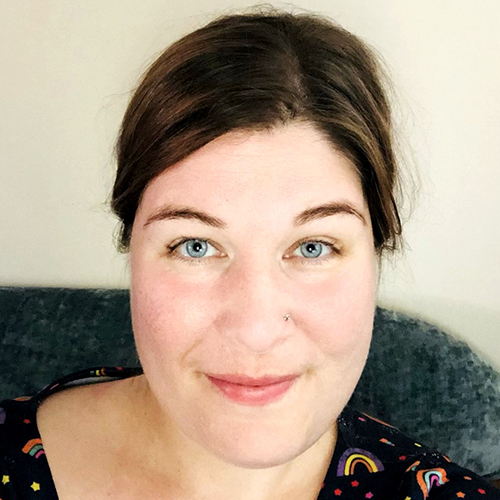
View Details / Enroll
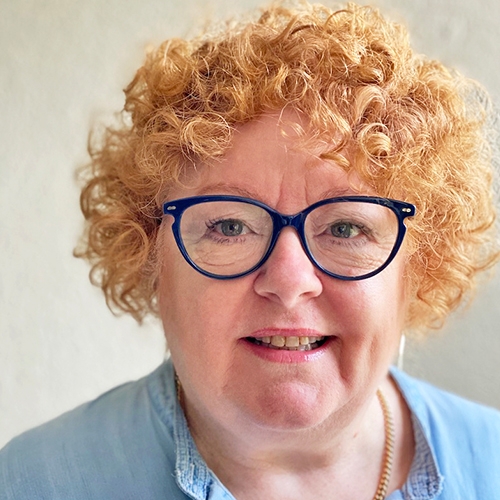
Protecting the Caesarean Birth Wound From Surgical Wound Complications(SWC)

Leonie graduated as a Nurse in 1977, a Midwife in 1980 and a Post Grad Cert in
Higher education in 2012. In 2018 Leonie founded ‘Caesarcare’ offering resources and a self published eBook titled ‘Woman-Centred Caesarean Care’ for women having surgical births.
Leonie also has a special interest in helping women who experience neonatal loss and in 2005, she founded an health promotion charity Pastoral Health Care Network Australia,(PHNA) to assist families living with grief and loss. Her initiative to gift adult comfort shawls to parents after still birth has since been adopted by the Nations SIDS foundation.
Currently Leonie serves Vice president of PHNA and as the Australian College of Midwives Liaison officer at Australian Catholic University.
In 2010 Leonie was recognised for her service to Nursing and duly admitted as a Fellow of
the Royal College of Nursing Australia.
In March 2019 Leonie’s wound splint invention the SAC (surgical after care )splint designed to help women support their c-section wounds was shortlisted for the Australian College of Nursing innovation award during Australia’s National Healthcare Week .Leonie lives in Brisbane Australia and teaches online classes for women preparing for and recovering from C-section births.
The presentation will describe the Caesarean section procedure and layers of tissue involved in the surgery including the techniques for wound closure. Surgical wound complications (SWC)will be discussed along with characteristics, and diagnostics involved. Best practice wound care, dressings and hygiene will be outlined. The signs and symptoms of wound dehiscence and infections will be described as well as management. Risk factors for delayed healing and SWC’s will be outlined and preventative measures discussed. World trends and statistics for Surgical birth and SWC’s will be highlighted.

View Details / Enroll
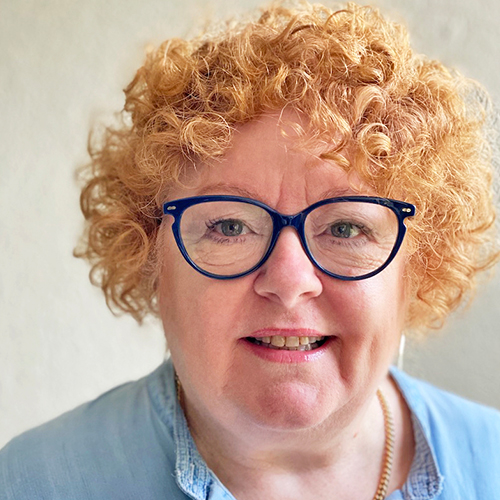
View Details / Enroll
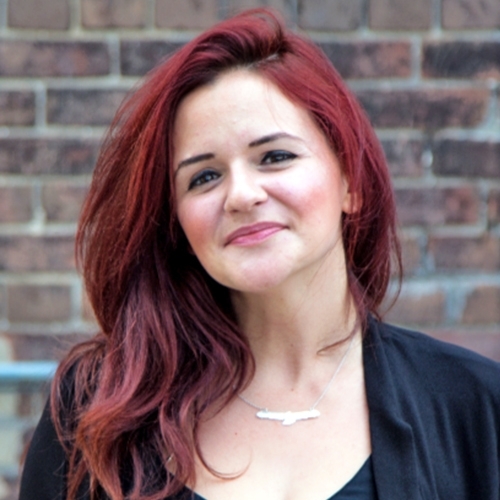
Protecting The Sacred: Honouring Birth Parents Through Planning for the Postpartum Journey

Emily Blackmoon (French/British/Algonquin) (She/Her) is a Registered Social Worker and holistic psychotherapist. She has worked for over 10 years as a therapist and case manager specifically within the urban Indigenous community of Toronto, supporting parents, families, children and youth. In 2014 she completed a 4 year training in Gestalt therapy and is now a supervisor. In her therapy practices, Emily combines Anti-Racist. Anti-Oppressive, and Feminist principals of social work with Gestalt therapy and Indigenous worldviews. Emily works with new parents to support them in developing wholistic, empowered and gentle approaches to the pregnancy/parenting journey.
Participants will be invited to holistically consider the postpartum needs of birth parents. Through an invitation to walk through the various aspects of their human journey - from the spiritual and cultural, to the emotional, the cognitive and the physical- participants will be invited to think critically and holistically about the human needs of those on their journey towards giving birth and after giving birth. Emily will use these directions to invite participants to support professionals in asking their patients and clients: what they want out of their pregnancy/postpartum journey? Who and what is within their constellation of support, and how? How do we support our parents in accessing their own agency to ask for support in the event that they experience the symptoms of postpartum mood and anxiety disorders?








